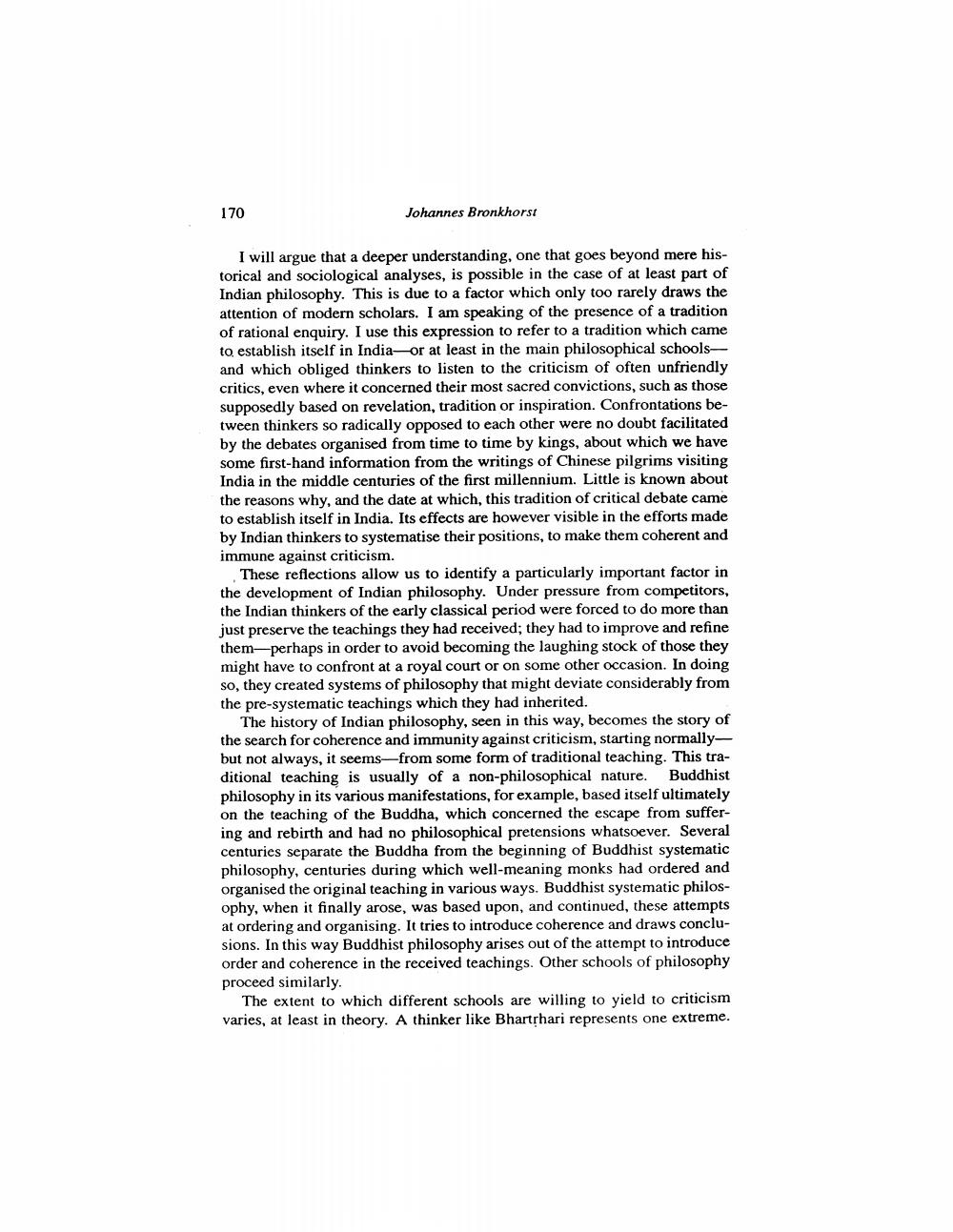________________
170
Johannes Bronkhorst
I will argue that a deeper understanding, one that goes beyond mere historical and sociological analyses, is possible in the case of at least part of Indian philosophy. This is due to a factor which only too rarely draws the attention of modern scholars. I am speaking of the presence of a tradition of rational enquiry. I use this expression to refer to a tradition which came to establish itself in India-or at least in the main philosophical schoolsand which obliged thinkers to listen to the criticism of often unfriendly critics, even where it concerned their most sacred convictions, such as those supposedly based on revelation, tradition or inspiration. Confrontations between thinkers so radically opposed to each other were no doubt facilitated by the debates organised from time to time by kings, about which we have some first-hand information from the writings of Chinese pilgrims visiting India in the middle centuries of the first millennium. Little is known about the reasons why, and the date at which, this tradition of critical debate came to establish itself in India. Its effects are however visible in the efforts made by Indian thinkers to systematise their positions, to make them coherent and immune against criticism.
These reflections allow us to identify a particularly important factor in the development of Indian philosophy. Under pressure from competitors, the Indian thinkers of the early classical period were forced to do more than just preserve the teachings they had received; they had to improve and refine them perhaps in order to avoid becoming the laughing stock of those they might have to confront at a royal court or on some other occasion. In doing so, they created systems of philosophy that might deviate considerably from the pre-systematic teachings which they had inherited.
The history of Indian philosophy, seen in this way, becomes the story of the search for coherence and immunity against criticism, starting normallybut not always, it seems-from some form of traditional teaching. This traditional teaching is usually of a non-philosophical nature. Buddhist philosophy in its various manifestations, for example, based itself ultimately on the teaching of the Buddha, which concerned the escape from suffering and rebirth and had no philosophical pretensions whatsoever. Several centuries separate the Buddha from the beginning of Buddhist systematic philosophy, centuries during which well-meaning monks had ordered and organised the original teaching in various ways. Buddhist systematic philosophy, when it finally arose, was based upon, and continued, these attempts at ordering and organising. It tries to introduce coherence and draws conclusions. In this way Buddhist philosophy arises out of the attempt to introduce order and coherence in the received teachings. Other schools of philosophy proceed similarly.
The extent to which different schools are willing to yield to criticism varies, at least in theory. A thinker like Bhartṛhari represents one extreme.




